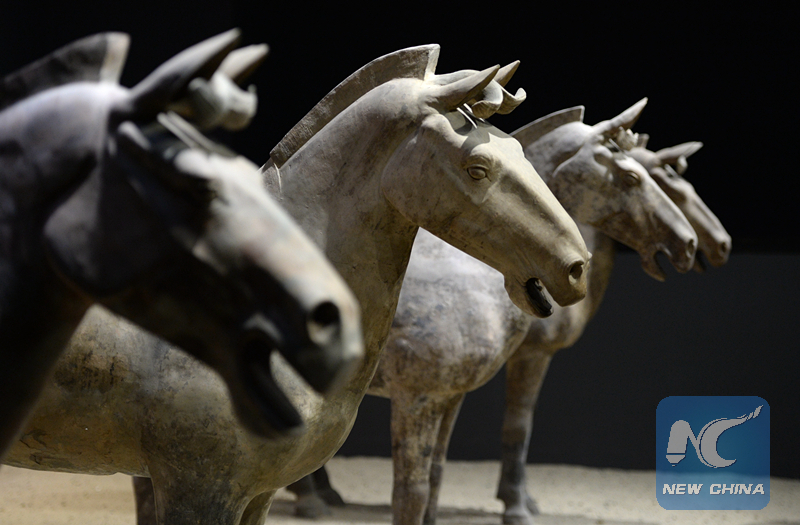
Terracotta horses (Xinhua photo/Li Yibo)
An exhibition highlights 600 treasures of Chinese history at the Shaanxi History Museum in Xi'an, northwest China. The exhibits are selected from the museum's 1.71 million pieces of collection, dating as far back as 1046 BC.
Following are some of the most precious exhibits:
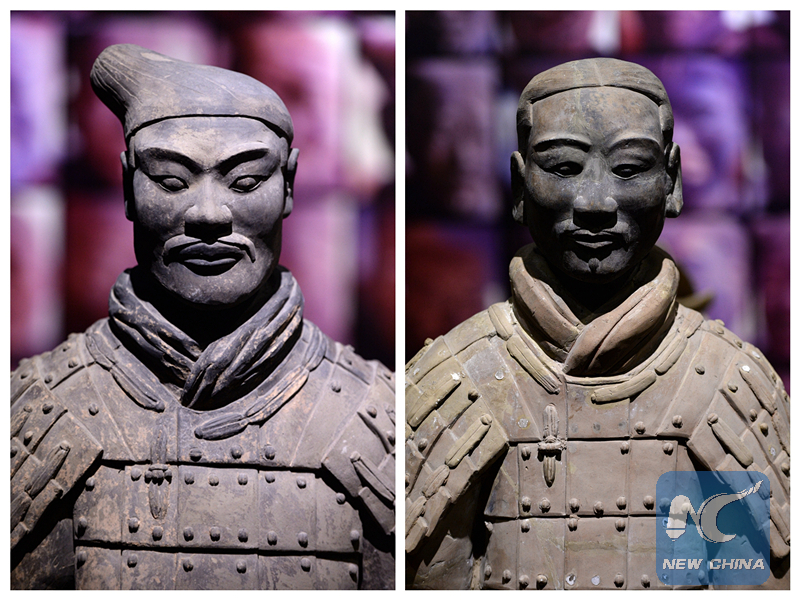
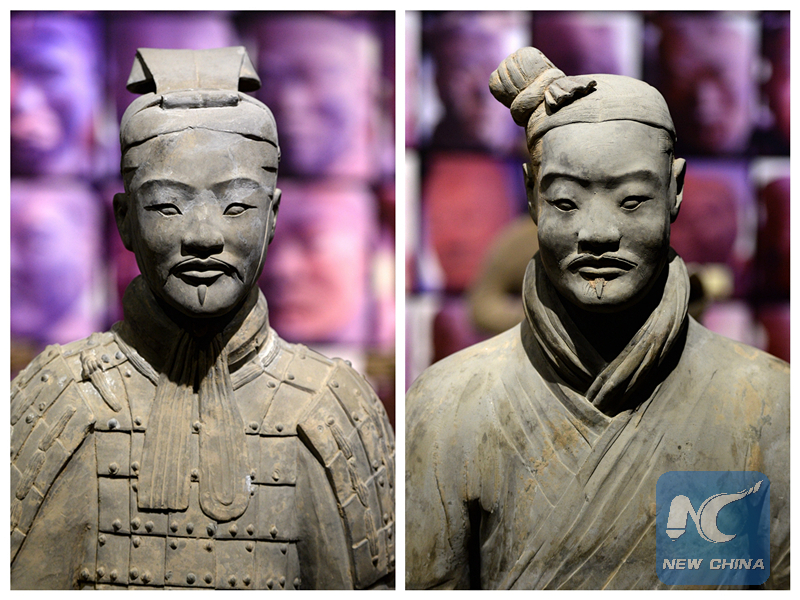
(Xinhua photo/Li Yibo)
- Terracotta warriors
Terracotta warriors are the best-known historical relics in Shaanxi. They were unearthed from the tomb of Emperor Qinshihuang, China's first emperor, who lived between 259-210 B.C.
The life-sized clay figures were first discovered in 1974 in the underground mausoleum, the world's largest.
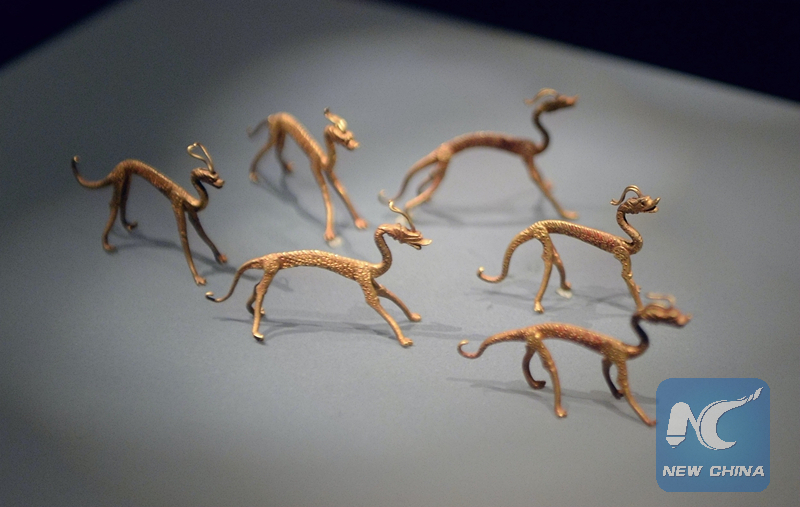
(Xinhua photo/Li Yibo)
- Running gold dragons
The Tang Dynasty (618-907)
Length:4 cm; Height :2.8 cm
Unearthed in 1970 from Heijiacun, Xi'an City
These small dragons have two horns and a long tail and were decorated with fish scale patterns. They are exquisite handicrafts of the Tang Dynasty.
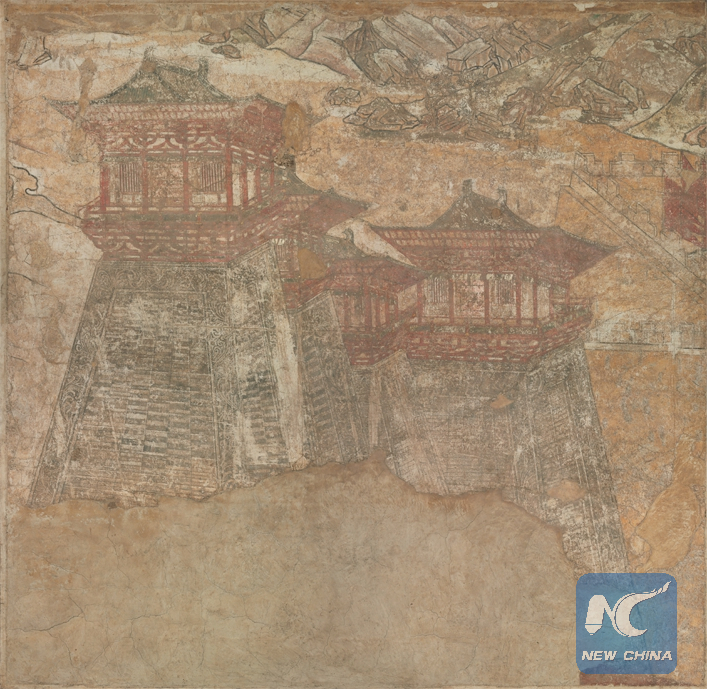
(File photo from the museum)
- Murals
These towers decorated Prince Yide's tomb. The mural was drawn on the west side of the tomb passage, depicting a three-tower complex with mountains, rocks, valleys and plants in the background. The contrasts of light and shade and the forceful lines are typical of the early Tang style.
Prince Yide, Li Chongrun (682-701AD), the eldest son of Emperor Zhongzong, was executed by Empress Wu in the first year of her reign. After Zhongzong resumed the throne in 705 AD, he posthumously awarded his son the title of Prince Yide, and his coffin was moved back to Qianling from Luoyang.
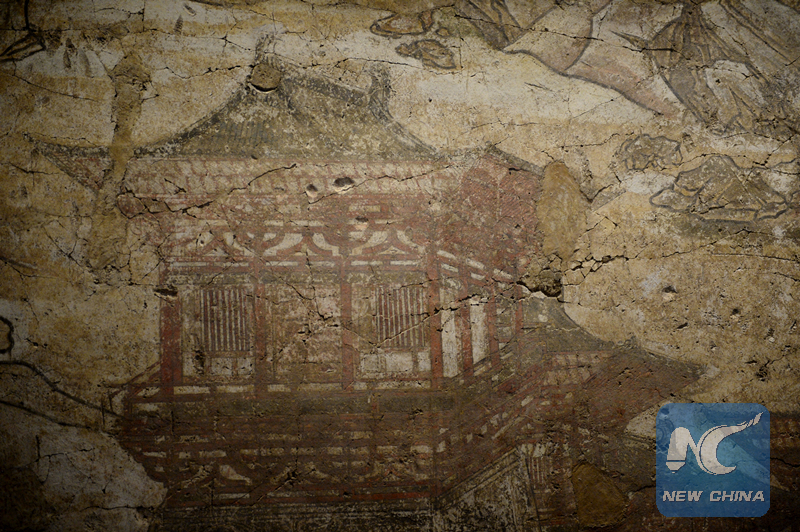
(Xinhua photo/Li Yibo)
In such a large-scale tomb, the funerary objects were ornate. More than 1,000 pieces were unearthed. The murals cover almost 400 square meters. They are masterpieces of representative painting from the early Tang Dynasty to the flourishing Tang Dynasty, an extremely rare genre in paintings from this period.
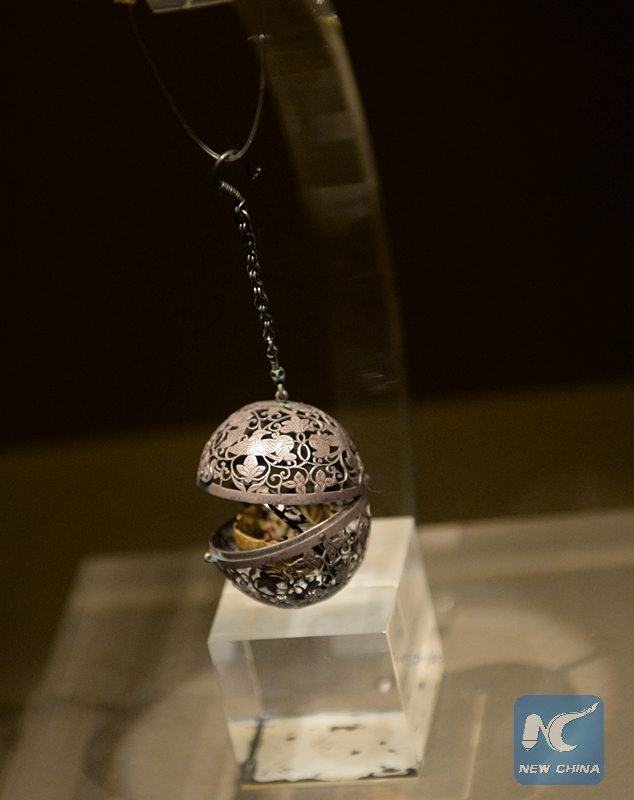
(Xinhua photo/Li Yibo)
- Silver Perfume Fumigator
The Tang Dynasty
Unearthed in 1970 from Hejiacun, Xi'an City
This object was made in the shape of a ball that was divided into two hollowed hemispheres with a pattern of flowers, honeysuckle, grapevines and four birds. Inside the lower hemisphere there are two concentric rings, which prevent the perfume inside from spilling.
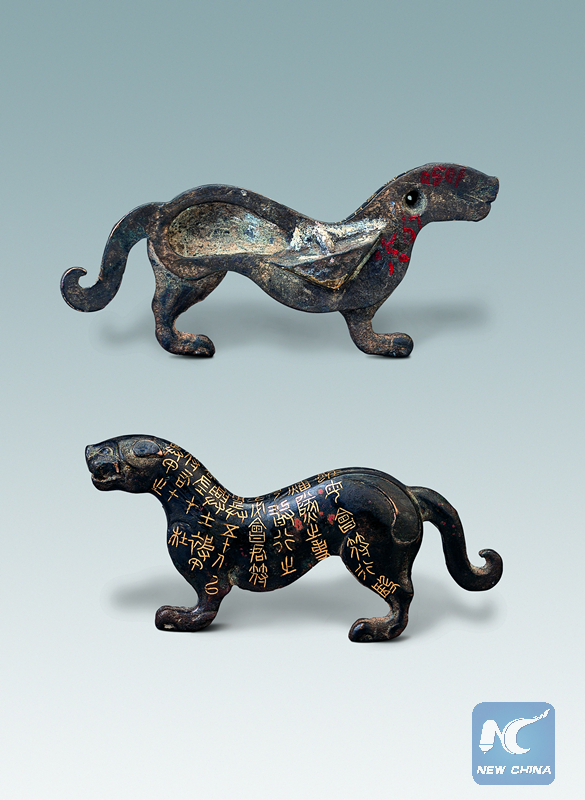
(File photo from the museum)
- Tiger tally
The Warring States Period (Qin) (475-221 BC)
Height:4.4cm; Length:9.5cm
Unearthed in 1957 from Duchengcun, Xi'an City
This tiger tally has an inscription of 40 characters about a general who was garrisoned in a place called Du. In ancient China, the tally was a token used by the king to control his army.
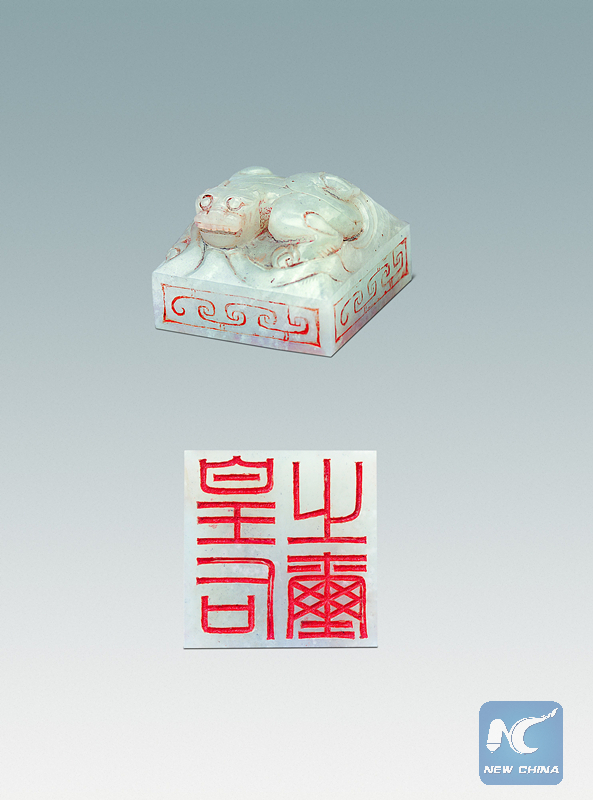
(File photo from the museum)
- The empress' jade seal
The West Han Dynasty (206 BC - 24 AD)
Height:2 cm Side Length:2.8 cm
Unearthed in 1968 at Liangjiaogou, Xianyang City, Shaanxi Province
This seal of Hotan jade came from Xinjiang Uygur Autonomous Region. There a monster carved on top, and the seal is inscribed with 4 characters "Huang Hou Zhi Xi," which means it is an empress' seal. It was unearthed just 1 kilometer from Changling, the mausoleum of Emperor Gaozu, Liu Bang, and his wife Lyu Zhi. Therefore, it may have been used by Empress Lyu Zhi. The jade seal is one of the most important seals ever found.

